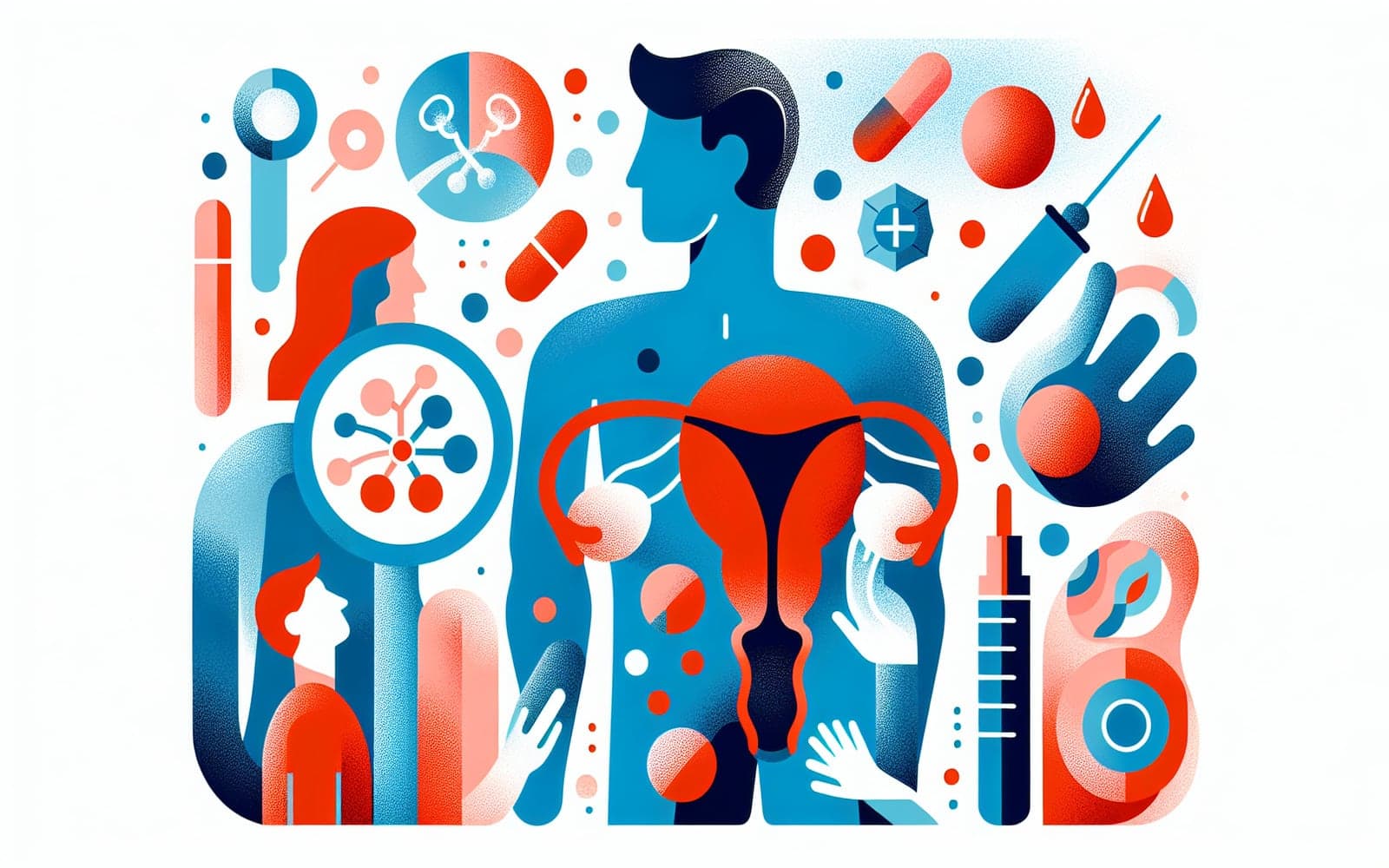Are You at Risk for Chronic Bacterial Prostatitis?
Published: Jan 03, 2024
Chronic bacterial prostatitis doesn't strike at random. Certain factors can put you in the bacteria's crosshairs. Knowing these risk factors can help you stay one step ahead of this persistent infection.
Contents
The Aftermath of Acute Prostatitis
One of the biggest risk factors is a previous bout of acute prostatitis. It's like leaving the door unlocked after a break-in. If acute prostatitis isn't treated thoroughly enough or for long enough, the infection can smolder and become chronic. Studies show that about 10% of men with acute prostatitis go on to develop the chronic form.
Medical Conditions and Lifestyle Factors
Certain health conditions can make you more susceptible. Diabetes is like giving bacteria a free pass, as high blood sugar can weaken your immune defenses. Smoking is another risk factor - it's like sending out an invitation to harmful bacteria. Men with enlarged prostates are also at higher risk, as the changed structure can trap bacteria more easily.

Urological Procedures and Issues
Any procedure involving the urinary tract can potentially introduce bacteria. This includes catheterizations, cystoscopies, or prostate biopsies. It's like opening a door for bacteria to enter. Urinary tract obstructions or kidney stones can also increase your risk by creating areas where bacteria can hide and multiply.
The Stone Connection
Prostate stones, while not widely discussed, can play a significant role. These small calcifications can harbor bacteria, making infections harder to clear. It's like giving the bacteria a fortress to hide in. Men with prostate stones are more likely to experience relapses of chronic bacterial prostatitis.
Frequently Asked Questions
While it can occur at any age, it's more common in men under 50.
Frequent ejaculation may help flush out bacteria, potentially reducing risk.
There's no strong evidence for a genetic link, but family history of prostate issues may play a role.
While not directly linked, a healthy diet supports overall prostate health.
Prolonged cycling may irritate the prostate, but a direct link to infection isn't established.
Knowledge is Power
Understanding your risk factors for chronic bacterial prostatitis is the first step in prevention and early intervention.
References
- Yoon BI, Kim S, Han DS, et al. Acute bacterial prostatitis: how to prevent and manage chronic infection? J Infect Chemother 2012; 18:444.
- Zhao WP, Li YT, Chen J, et al. Prostatic calculi influence the antimicrobial efficacy in men with chronic bacterial prostatitis. Asian J Androl 2012; 14:715.
- Krieger JN, Nyberg L Jr, Nickel JC. NIH consensus definition and classification of prostatitis. JAMA 1999; 282:236.
This article has been reviewed for accuracy by one of the licensed medical doctors working for Doctronic. Always discuss health information with your healthcare provider.
AI Doctor Visit Required
Appointments available 24/7
15-min consultation. No hidden costs.
AI Doctor Visit Required
For safety reasons we have been forced to end this consultation.
If you believe this is a medical emergency please call 911 or your local emergency services immediately.
If you are experiencing emotional distress, please call the the Suicide & Crisis Lifeline at 988 or your local crisis services immediately.
Contact us
You can also email us at help@doctronic.ai
We aim to reply within 5-7 days
How likely are you to recommend Doctronic to friends or family?


